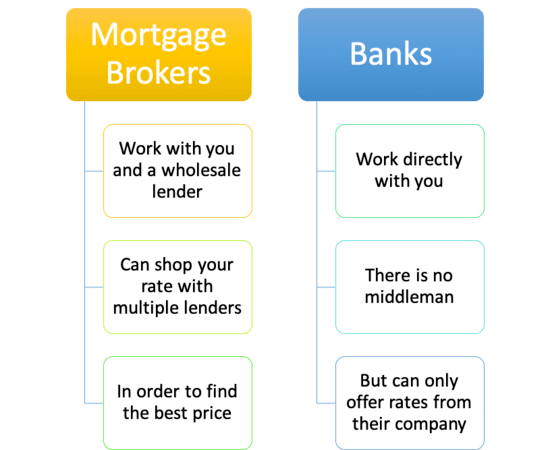Comprehending What a Jumbo Lending Entails and How It Varies From Traditional Fundings
Navigating the details of jumbo finances reveals a funding option customized for those venturing right into high-value real estate, usually going beyond the limits set by the Federal Housing Financing Agency. The considerable risk associated with big loans requires much more rigid credentials requirements, consisting of higher debt ratings and substantial down repayments.
Interpretation of Jumbo Car Loans
Jumbo finances are a kind of home mortgage that surpass the conforming loan restrictions established by the Federal Housing Financing Firm (FHFA) These lendings accommodate consumers who need to finance buildings that are extra costly than what standard loan restrictions enable. The FHFA establishes annual adhering funding limitations, and any kind of funding going beyond these limits is categorized as a big loan.
Commonly, big fundings are used in high-cost property markets where home costs substantially exceed nationwide standards, such as in cities or deluxe housing sectors. As these finances are not eligible for purchase by Fannie Mae or Freddie Mac, they bring intrinsic dangers for lending institutions because of their bigger size and non-conformity (jumbo loan). Loan providers commonly enforce much more strict certification standards for big lendings than conventional conforming lendings.
Borrowers seeking jumbo fundings must usually show a strong financial account, consisting of a greater credit history, robust income verification, and substantial down settlement, usually 20% or even more. Furthermore, lending institutions may call for more extensive paperwork to examine the debtor's capacity to handle larger regular monthly settlements. Understanding the certain features of big car loans is essential for prospective customers navigating this sector of the mortgage market.
Standard Finances Overview
While jumbo fundings deal with high-value property financing, conventional financings represent the more usual mortgage choice in the real estate market. These financings are not guaranteed or ensured by any kind of federal government entity, such as the Federal Real Estate Administration (FHA) or the Division of Veterans Affairs (VA) Rather, they are backed by personal loan providers and abide by standards established by government-sponsored business (GSEs) like Fannie Mae and Freddie Mac.
Conventional lendings are commonly supplied with dealt with or flexible rates of interest and differ in regards to period, frequently extending 15 to thirty years. Customers commonly choose standard lendings for their predictable regular monthly settlements, which can help with lasting financial planning. Additionally, they are offered for primary houses, 2nd homes, and investment homes, providing flexibility to satisfy varied customer demands.

Key Differences In Between Fundings
Comprehending the nuances in between different kinds of financings is critical for potential homebuyers navigating the complex mortgage landscape. At the center of this decision-making procedure are standard loans and jumbo finances, each having distinct characteristics and serving different debtor needs. The key distinction rests in the financing amount. Jumbo car loans exceed the conforming lending limits established by the Federal Real Estate Finance Agency (FHFA), which vary by region. On the other hand, standard financings abide by these limits and are typically purchased by government-sponsored entities like Fannie Mae and Freddie Mac.

Additionally, the deposit requirements can differ substantially. Big fundings generally call for bigger deposits, often exceeding 20%, to reduce risk. Conventional financings, conversely, may permit reduced down payments, with some programs approving as little as 3% for professional buyers.
Certification Requirements
Securing a jumbo car loan entails meeting much more rigorous certification demands contrasted to conventional financings, showing the enhanced risk to loan providers. These finances, which exceed the conforming financing restrictions established by the Federal Housing Financing Firm (FHFA), are not eligible for acquisition by Freddie Mac or Fannie Mae, thereby revealing loan providers to greater financial threat - jumbo loan. Because of this, borrowers should demonstrate a high credit reliability and monetary stability
A durable credit report, usually 700 or greater, is vital for authorization. Lenders likewise expect a reduced debt-to-income (DTI) ratio, usually not going beyond 43%, guaranteeing that borrowers can take care of significant month-to-month settlements alongside other monetary responsibilities. Additionally, a significant cash money book is usually required, generally totaling up to six months of home mortgage payments, to comfort loan providers of the consumer's economic durability.
Deposit assumptions are also raised, frequently starting at 20% or even more of the property's value. While this is a secure for lenders, it requires significant upfront resources from borrowers. Additionally, proof of regular, sufficient revenue is necessary, generally validated through income tax return, W-2s, and recent pay stubs. Independent people might require to Click Here supply additional documentation, such as revenue and loss declarations, to substantiate their earnings stability.
Picking the Right Finance
When choosing the most ideal funding choice,Navigating the complexity of big loans requires careful consideration. With the more comprehensive variety of choices readily available to those looking for jumbo car loans, the decision-making procedure needs to involve an extensive analysis of one's monetary profile and long-term objectives. Unlike standard car loans, jumbo fundings frequently include stricter demands and varied rates of interest, which necessitate detailed research study and a clear understanding of one's economic standing.
When picking in between various big financing offerings, it is necessary to examine the finance terms, including rates of interest, repayment schedules, and associated costs. Debtors ought to contrast the rates offered by various loan providers to ensure they protect the most desirable terms. In addition, recognizing the implications of fixed versus variable-rate mortgages (ARMs) is essential, as each alternative offers distinctive benefits and threats relying on market conditions and personal economic methods.
Engaging with an economic advisor or home loan broker can supply useful insights customized to specific situations. These experts can help in browsing the subtleties of big lendings, guaranteeing that debtors are knowledgeable and geared up to select a finance that aligns with their monetary goals, eventually helping with a smoother home-buying process.
Conclusion
In summary, big finances function as a monetary tool for acquiring high-value residential properties, requiring stringent eligibility Full Report requirements and greater rate of interest rates because of the elevated threat for lenders. Unlike traditional loans, which comply with FHFA limits and may get backing from Fannie Mae or Freddie Mac, big lendings call for a minimal credit rating score of 700 and considerable deposits. Recognizing these differences is more helpful hints important for customers in high-cost actual estate markets to identify one of the most appropriate funding alternative for their requirements.
The FHFA establishes annual conforming loan limits, and any type of loan exceeding these thresholds is identified as a big car loan.
At the center of this decision-making process are conventional finances and jumbo lendings, each having unique qualities and offering various borrower demands.Securing a jumbo car loan involves meeting a lot more rigorous certification requirements contrasted to standard loans, reflecting the increased risk to lending institutions. Unlike standard car loans, jumbo loans usually come with more stringent needs and differed passion prices, which demand extensive study and a clear understanding of one's economic standing.
Unlike standard financings, which adhere to FHFA limitations and may obtain support from Fannie Mae or Freddie Mac, jumbo lendings require a minimal credit scores rating of 700 and considerable down payments.